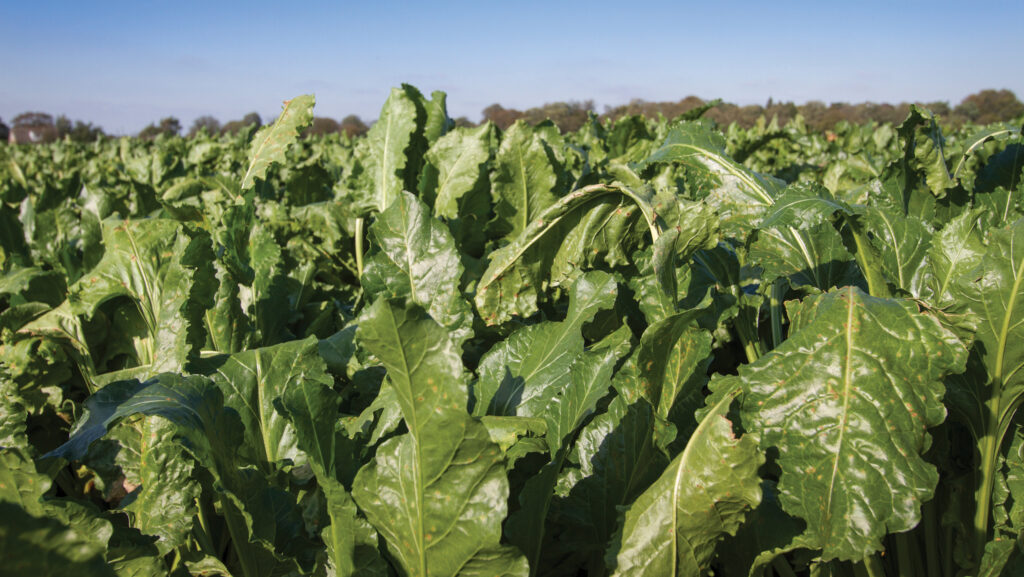Sugar beet contract prices likely to be below £40/t next year
 © GNP
© GNP Sugar beet prices for the 2025-26 contract are expected to be lower than the fixed price of £40/t being offered for the 2024-25 contract, according to NFU Sugar board chairman Michael Sly.
Spot markets have dropped by more than 20% since peaking in January, with global sugar production for 2023-24 forecast at a record 183.5m tonnes.
Mr Sly said NFU Sugar was currently in the middle of negotiations with British Sugar for next year’s sugar beet price.
See also: £28/ha for reduced carbon is a winner with sugar beet growers
He said: “We did make growers aware in a joint statement that the global sugar markets have come off.
“We wanted to make sure growers were aware that if they were going to make any significant investments, the price they are going to get in 2025 will be lower.”
Crop conditions
The UK cropping area for 2024-25 is estimated by industry at 102,500ha, which would be the largest planted area for several years.
Mr Sly said: “The current crop is looking generally well, although it was planted later.
“We are finally getting the sunshine and warmth which we all needed, but we are getting some soil-borne pest issues on certain soil types.
“We don’t need to remind you how wet May and June have been, but the positive effect of that is that it has reduced aphid levels in the crop.
“But we must remember that 80% of the crop didn’t have Cruiser seed treatments.”
The cool, wet and windy weather over the past few weeks has helped to limit aphid build up, according to the British Beet Research Organisation (BBRO).
It said growers were seeing myriad small issues across the growing region, including multicrowning, bacterial leaf spot and downy mildew, but these were not creating any widespread concern at the moment.
Europe
The EU Commission’s crop monitoring service reported on 24 June that it had been a difficult start to summer with lower yield prospects.
The EU sugar beet yield forecast was cut in the report from 75.4t/ha in May to 74.4t/ha in June, driven by reductions in Belgium, France, the Netherlands and Romania. However, yields still remain above the five-year average.
Pesticides
At the NFU Council on 25 June, it was suggested that under a new government there is likely to be a ban on “bee-killing pesticides”. Michael Sly said the industry has put in an application to continue use of some products until 2025, but acknowledged it was extremely unlikely that it would be granted.
